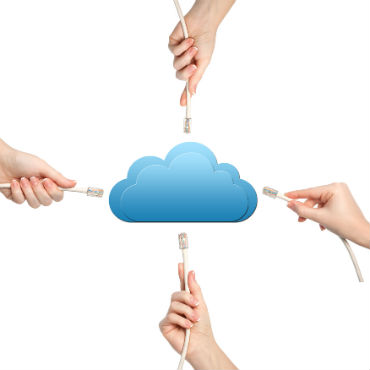CIO Council: Get on the same platform
The CIO Council wants agencies to modernize using shared cloud-supported solutions and hosted APIs.

Taking a government-as-a-platform approach to IT service delivery by leveraging cloud-supported solutions can help modernize and digitize federal agencies, according to a new report from the CIO Council.
Application components such as payments, user authentication, analytics, and workflow management "can be built once, offered as developer-focused services, and shared between missions," stated the report, Developer Platforms: Shared Services for Common Developer-Focused APIs and Services. The goal is to offer federal departments and agencies best practices for using new platform capabilities powered by cloud and hosted application programming interfaces.
Several examples of these shared platforms already exist here and abroad. Login.gov is a shared authentication platform that 18F is developing to support a streamlined login experience that lets end users access a variety of federal services with a streamlined verification and login process. Because Login.gov is a shared platform, "the software, documentation, and processes are reusable across agencies," the report said.
Another example is Cloud.gov, which is a platform-as-a-service offering that already complies with federal security requirements. Systems built on it inherit this compliance, which substantially reduces the amount of compliance work required and allows development teams to iterate, launch and scale applications rapidly. A free sandbox account is available to all government staff who want to evaluate Cloud.gov.
The third example of a shared platform, Pay.gov was created by the Bureau of the Fiscal Service in 2000 as a secure platform for handling payments to the federal government. It provides four main services: collections, reporting of transactions, electronic billing for payments due and hosting of forms. "As of 2016, Pay.gov collects over 119 million transactions worth over $106 billion per year and has broad acceptance across agencies," according to the report.
The United Kingdom launched its government-as-a-platform strategy four years ago. There, publishing was the first common platform for all government departments and agencies moving their messaging to Gov.UK to conform to standards set by the country's Government Digital Service. Since then, GDS has identified the 50 most common government transactions and is making the top 25 digital by default, modular and sharable across departments, the report stated.
Additionally, GDS doesn't build all the tools, but rather supports agencies that want to build them for the purpose of sharing them. "There is an opportunity to make the government start thinking of itself and behaving as a single entity, because that is the way citizens perceive it," the report said.
To make government as a platform more widespread stateside, the report suggested creating a single conduit within and outside the agency for responding to requests for datasets, analyzing data disclosure considerations and generating data sharing agreements. Additionally, the report recommended developing common templates and agreements to streamline the data sharing process. Using standard templates would help break "trust frameworks" into fundamental assertions through a unified solution, and those assertions can be joined to create new agreements out of established components.
Shifting to government as a platform "will require close collaboration between industry and government, disseminating lessons learned from early adopters, leveraging existing services and contracts, and sharing information," but will be worth the effort, the report found.
A version of this article appeared in FCW's sibling publication GCN.





